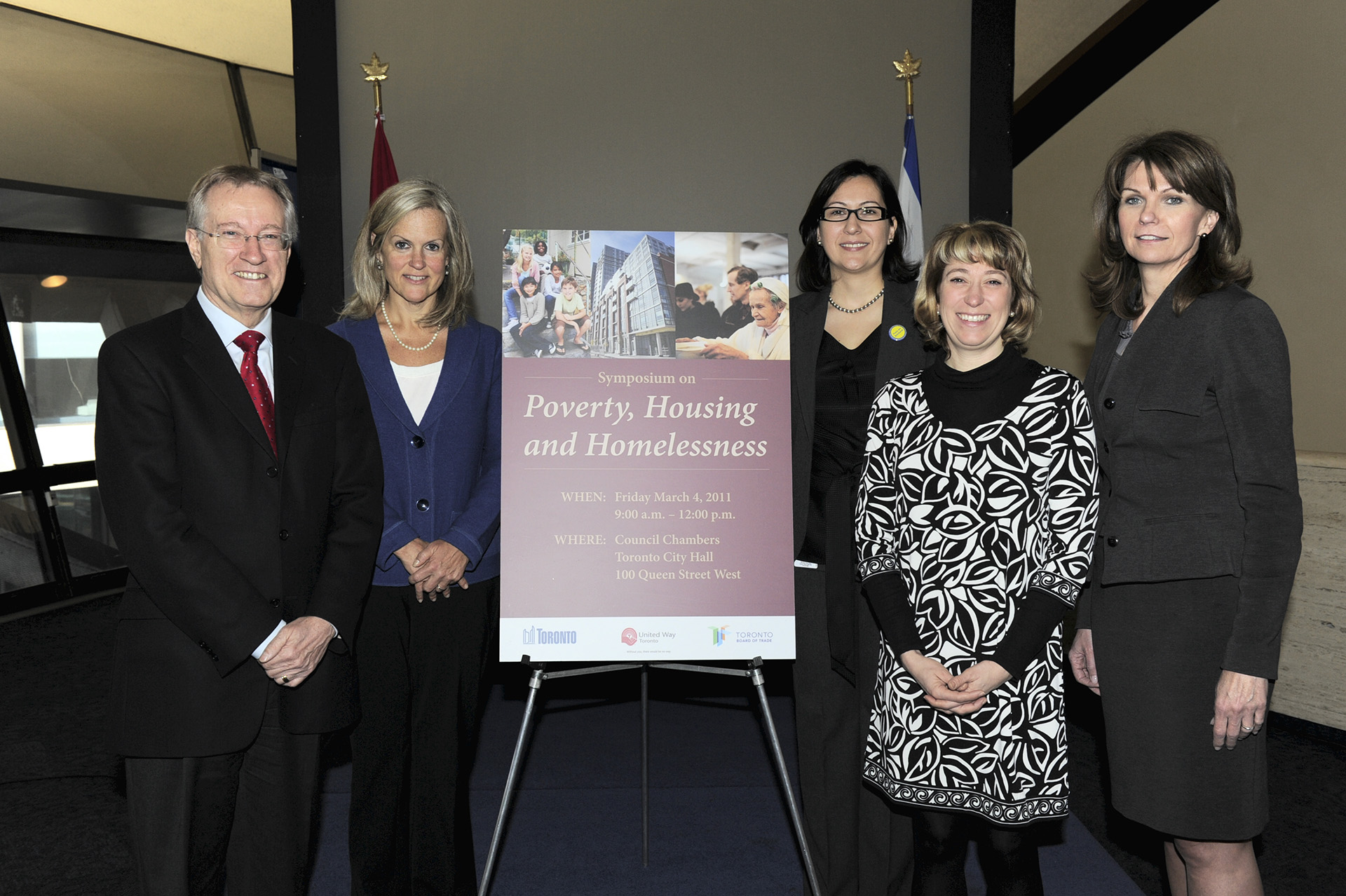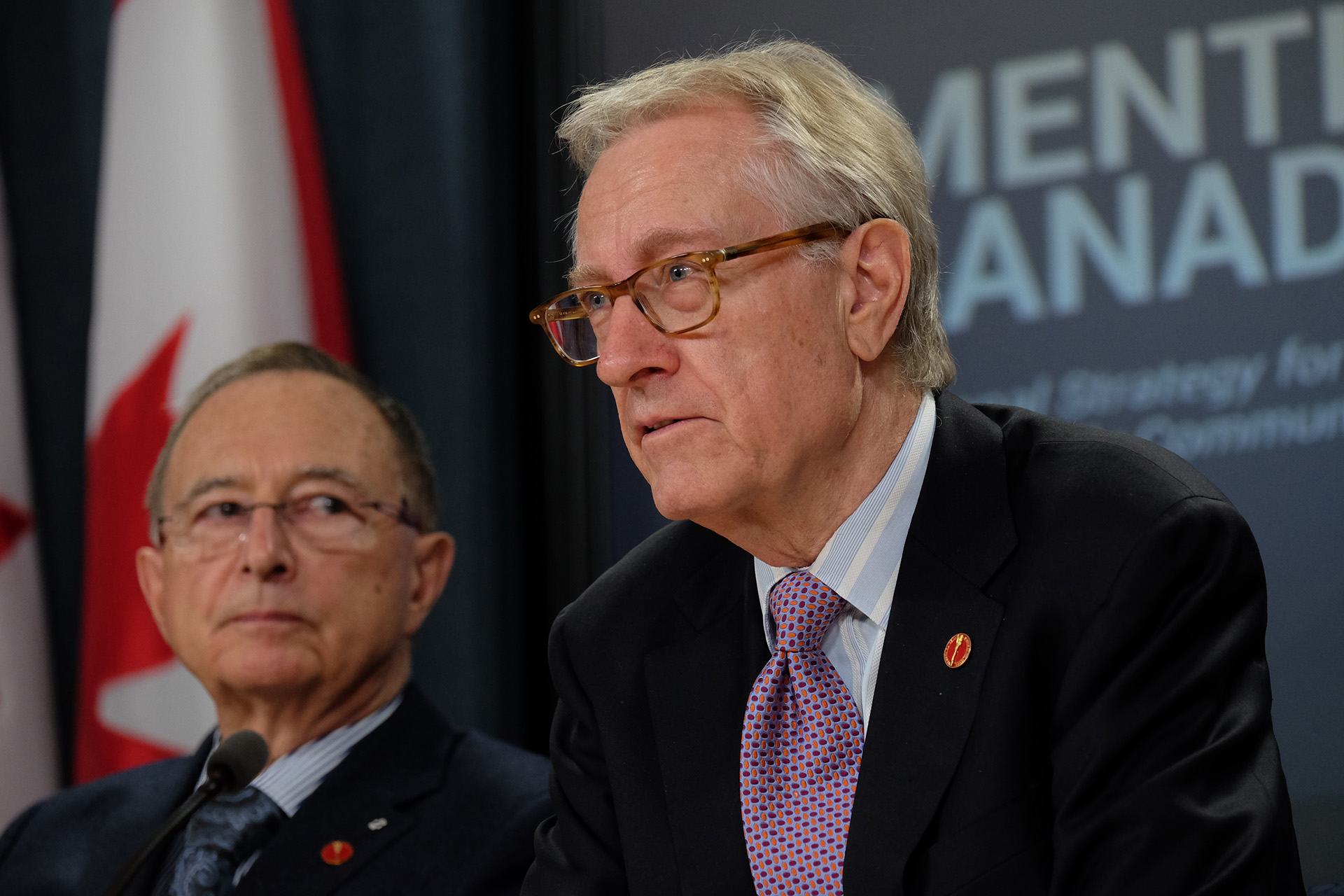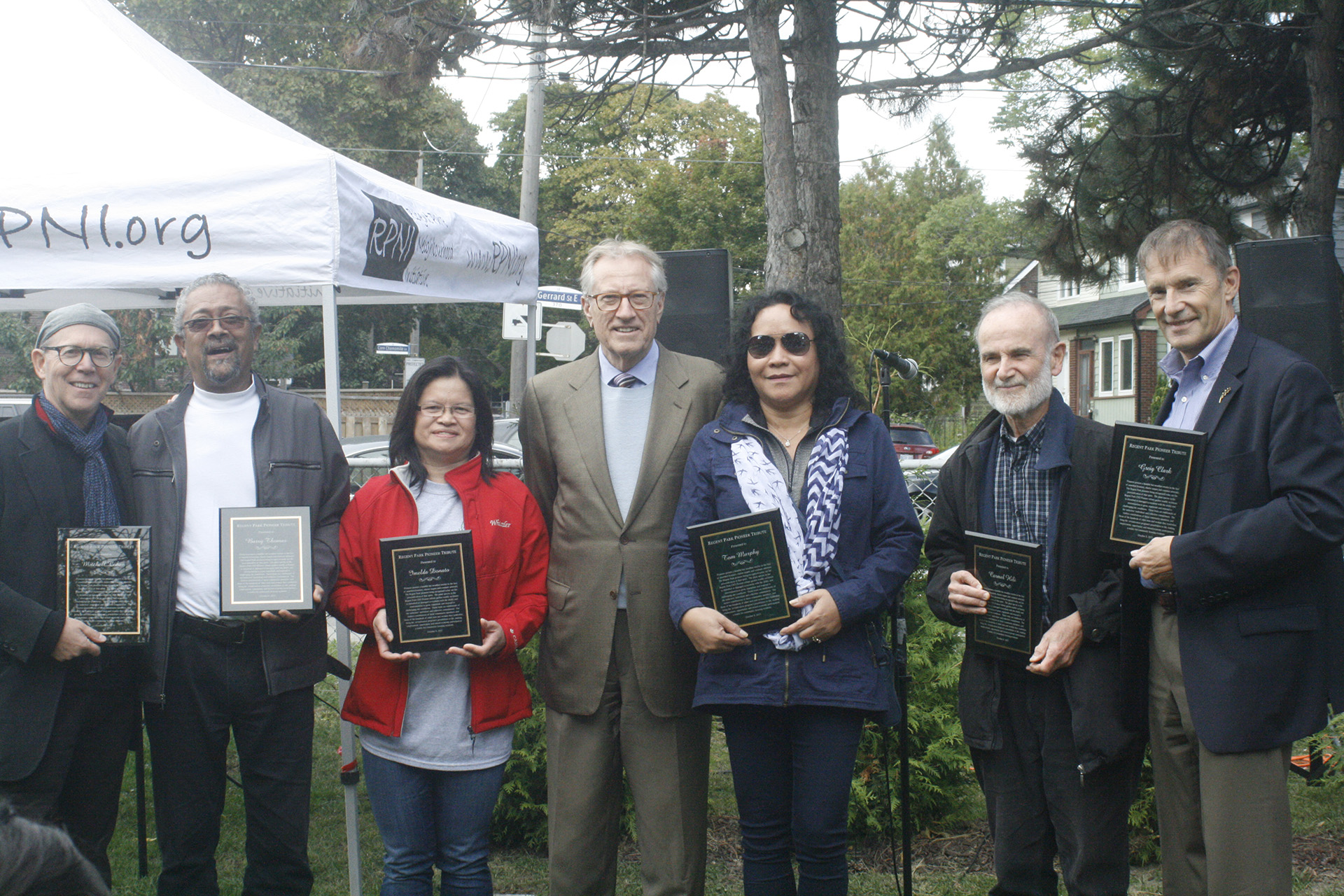‘My passion’: Senator Eggleton reflects on his legacy in the Senate

Senator Art Eggleton retired from the Senate in September 2018, after representing Ontario in the Red Chamber for more than 13 years.
He was appointed to the Senate in 2005, where he continued his career of public service. As chair and deputy chair of the Senate Committee on Social Affairs, Science and Technology he oversaw significant reports on everything from obesity to artificial intelligence in healthcare. He dedicated much of his work in the Red Chamber to raising awareness about poverty and homelessness. With his retirement in the Senate he brings to a close nearly 50 years in public office.
SenCAplus asked Senator Eggleton to reflect on his time in the Senate.

You are still the longest-serving mayor of Toronto. How did that experience prepare you for your career in the Senate?
I’ve been a councilor, a mayor, an MP, a cabinet minister and now a senator. They’ve all been terrific journeys for me. I’ve put in over 45 years to public office so I’m happy to be making a change at this point in time. They’ve all been terrific duties and responsibilities. I’ve enjoyed them all, but there’s nothing like being mayor of your own city. It’s a great honour, I was born and raised there and the city is part of who I am.
It gives a good grounding in terms of dealing with people at a local level and issues that they care about. In other words, it’s a good grounding in grassroots politics.
What is the most memorable moment of your 13 years in the Senate?
Former senator Michael Kirby was the chair of the social affairs committee and he wanted me to come to that committee. I joined it and I’m still there as I come to the end of my time in the Senate. I dedicated my time to social justice and healthcare reform issues which is the major part of the work of that committee in terms of the studies that it has done.
So that has been my passion and my time and energy has been put into that committee.
The first thing I did was to launch a study on poverty, housing and homelessness, particularly in the cities of the country. Out of that we produced a report called In from the Margins: A Call to Action on Poverty, Housing and Homelessness. In terms of Senate activities, that was the beginning of my dedication to those issues that involve some of the most vulnerable people in this country. I’ve been working on those issues ever since.
That report brought together a lot of issues with respect to poverty and homelessness and the need to have federal leadership both in terms of income security and other social support programs, and housing and homelessness programs. We pushed the button in terms of trying to get more attention — and we did get more attention — to these issues by the federal government. As a result now, we have a poverty reduction strategy and a housing strategy, partly because of the push we put on through our endeavors in the Senate.
I also founded and convened the All-Party Anti-Poverty Caucus to ensure these issues continue to be understood by both the senators and MPs and that has helped in keeping alive the need to address these issues involving our most vulnerable citizens. In more recent times we’ve done reports on obesity. Out of that has come several recommendations the government is acting on. We’ve also done other important studies on dementia, artificial intelligence and robotics in healthcare, and the regulation of pharmaceutical drugs in Canada.
How has the Senate changed since your appointment in 2005?


The last three years in this 42nd Parliament, I think, have been the best ever because of the change in the appointment process by the government. We have less partisan and more independence in the Senate Chamber because that’s the nature of the appointments they’re making. The last parliament and previous parliaments for a number of years have been largely the Liberals and Conservatives — almost a duplicate structure of the House of Commons, in terms of the relationship between government and opposition. Largely, it was senators also sitting in the same caucus as MPs, which does not lend itself to independence.
I think we’re on a better path now and I think it’s a much better Senate for it. There’s a lot of unchartered territory ahead, but I think we’re on a good path.
What’s next for you?
I’m still going to work on community issues, particularly social justice and healthcare reforms — those are my passions that came out of my Senate work. I will continue to work through community organizations and I will also keep an eye on what happens at city council in Toronto. I’m concerned about a number of issues in the city — its affordability, the need for affordable housing, the need to better combat poverty. I’m also the chair of the World Council on City Data which originates from the University of Toronto Global Cities Institute.
So you’re not going quietly into retirement?
I’m going to continue to keep busy. A little bit better balance of time with family and friends, as well as work. I don’t like the idea of retirement.
What advice would you give to a new senator?
Find people that they know and trust and work with them, learn from them. No senator can be on top of all of the issues here and an independent senator needs to be able to work with other senators, part of a team, to specialize in areas like I’ve specialized in social issues through the social affairs committee. I think it’s good to find the kinds of things that drive their passion.
A lot of these people came from areas of expertise that they want to follow here. A lot of them have knowledge in different areas that can be quite valuable and they should use that to drive their agenda. They can’t do everything so they’ve got to focus on the things they think they can make a difference in.
The Honourable Art Eggleton retired from the Senate of Canada in September 2018. Visit the Library of Parliament's Parlinfo website to learn more about his work in Parliament.
Related articles
Tags
Committee news
‘My passion’: Senator Eggleton reflects on his legacy in the Senate

Senator Art Eggleton retired from the Senate in September 2018, after representing Ontario in the Red Chamber for more than 13 years.
He was appointed to the Senate in 2005, where he continued his career of public service. As chair and deputy chair of the Senate Committee on Social Affairs, Science and Technology he oversaw significant reports on everything from obesity to artificial intelligence in healthcare. He dedicated much of his work in the Red Chamber to raising awareness about poverty and homelessness. With his retirement in the Senate he brings to a close nearly 50 years in public office.
SenCAplus asked Senator Eggleton to reflect on his time in the Senate.

You are still the longest-serving mayor of Toronto. How did that experience prepare you for your career in the Senate?
I’ve been a councilor, a mayor, an MP, a cabinet minister and now a senator. They’ve all been terrific journeys for me. I’ve put in over 45 years to public office so I’m happy to be making a change at this point in time. They’ve all been terrific duties and responsibilities. I’ve enjoyed them all, but there’s nothing like being mayor of your own city. It’s a great honour, I was born and raised there and the city is part of who I am.
It gives a good grounding in terms of dealing with people at a local level and issues that they care about. In other words, it’s a good grounding in grassroots politics.
What is the most memorable moment of your 13 years in the Senate?
Former senator Michael Kirby was the chair of the social affairs committee and he wanted me to come to that committee. I joined it and I’m still there as I come to the end of my time in the Senate. I dedicated my time to social justice and healthcare reform issues which is the major part of the work of that committee in terms of the studies that it has done.
So that has been my passion and my time and energy has been put into that committee.
The first thing I did was to launch a study on poverty, housing and homelessness, particularly in the cities of the country. Out of that we produced a report called In from the Margins: A Call to Action on Poverty, Housing and Homelessness. In terms of Senate activities, that was the beginning of my dedication to those issues that involve some of the most vulnerable people in this country. I’ve been working on those issues ever since.
That report brought together a lot of issues with respect to poverty and homelessness and the need to have federal leadership both in terms of income security and other social support programs, and housing and homelessness programs. We pushed the button in terms of trying to get more attention — and we did get more attention — to these issues by the federal government. As a result now, we have a poverty reduction strategy and a housing strategy, partly because of the push we put on through our endeavors in the Senate.
I also founded and convened the All-Party Anti-Poverty Caucus to ensure these issues continue to be understood by both the senators and MPs and that has helped in keeping alive the need to address these issues involving our most vulnerable citizens. In more recent times we’ve done reports on obesity. Out of that has come several recommendations the government is acting on. We’ve also done other important studies on dementia, artificial intelligence and robotics in healthcare, and the regulation of pharmaceutical drugs in Canada.
How has the Senate changed since your appointment in 2005?


The last three years in this 42nd Parliament, I think, have been the best ever because of the change in the appointment process by the government. We have less partisan and more independence in the Senate Chamber because that’s the nature of the appointments they’re making. The last parliament and previous parliaments for a number of years have been largely the Liberals and Conservatives — almost a duplicate structure of the House of Commons, in terms of the relationship between government and opposition. Largely, it was senators also sitting in the same caucus as MPs, which does not lend itself to independence.
I think we’re on a better path now and I think it’s a much better Senate for it. There’s a lot of unchartered territory ahead, but I think we’re on a good path.
What’s next for you?
I’m still going to work on community issues, particularly social justice and healthcare reforms — those are my passions that came out of my Senate work. I will continue to work through community organizations and I will also keep an eye on what happens at city council in Toronto. I’m concerned about a number of issues in the city — its affordability, the need for affordable housing, the need to better combat poverty. I’m also the chair of the World Council on City Data which originates from the University of Toronto Global Cities Institute.
So you’re not going quietly into retirement?
I’m going to continue to keep busy. A little bit better balance of time with family and friends, as well as work. I don’t like the idea of retirement.
What advice would you give to a new senator?
Find people that they know and trust and work with them, learn from them. No senator can be on top of all of the issues here and an independent senator needs to be able to work with other senators, part of a team, to specialize in areas like I’ve specialized in social issues through the social affairs committee. I think it’s good to find the kinds of things that drive their passion.
A lot of these people came from areas of expertise that they want to follow here. A lot of them have knowledge in different areas that can be quite valuable and they should use that to drive their agenda. They can’t do everything so they’ve got to focus on the things they think they can make a difference in.
The Honourable Art Eggleton retired from the Senate of Canada in September 2018. Visit the Library of Parliament's Parlinfo website to learn more about his work in Parliament.


